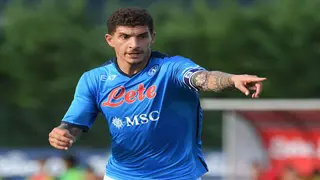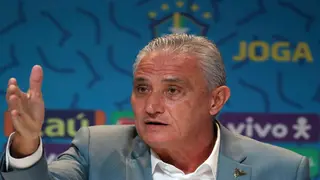Mateo Kovačić's net worth, house, cars, contract, dating, salary, age, stats
Football
Rudi Gutendorf, a renowned German football player and coach, left an indelible mark on soccer with his unique coaching style and extensive international experience. Born in Germany, his career spanned several decades, taking him to numerous countries across the globe. Gutendorf’s dedication to the sport was evident in his record for coaching a remarkable number of teams.

His legacy in football remains a testament to his passion and commitment to the beautiful game. This article is a culmination of extensive research, synthesizing diverse sources to provide a comprehensive overview of Rudi Gutendorf’s remarkable career and enduring legacy in the sport.
Name | Rudolf "Rudi" Gutendorf |
Birth date | August 30, 1926 |
Birthplace | Koblenz, Germany |
Zodiac sign | Virgo |
Age at death | 93 years |
Passing date | September 13, 2019 |
Nationality | German |
Playing career | Notable at TuS Neuendorf and other clubs |
Coaching genesis | 1946 |
Number of teams coached | 55 |
Wives | Married twice; first to Ute Pelzer, then to Marika |
Children | Had a son with his second wife, Marika, born in 1989 (age 30 at Gutendorf’s death) |
Net worth | Estimated between $1 and $9 million |
Mateo Kovačić's net worth, house, cars, contract, dating, salary, age, stats
Football
Rudolf “Rudi” Gutendorf, born on August 30, 1926, in Koblenz, Germany, and passing away on September 13, 2019, was a renowned German football player and coach. He was 93 years old at the time of his passing.
Rudi Gutendorf’s net worth was estimated to be between $1 and $9 million. This wealth was accumulated primarily through his career as a soccer player and coach.
Rudi was the eldest son of Heinz Gutendorf, Koblenz’s first driving school teacher, and his strict Catholic wife. He grew up in the Lützel district, inheriting his father’s passion for football. His early playing days were marked by street football, eventually leading to his involvement in the youth teams of VfB Lützel and TuS Neuendorf.
At the young age of ten, Rudi Gutendorf began his football journey with the youth team of VfB Lützel. With the onset of the war in 1939, he transitioned to playing for the youth team of TuS Neuendorf and earned multiple selections for the regional team.
Pedri's salary, house, cars, contract, dating, net worth, age, stats, latest news
Football

In 1942, due to the war front call-up of TuS Neuendorf’s main players, 16-year-old Rudi Gutendorf, upon Jupp Gauchel’s recommendation, ascended to first-team training as a right winger. Gutendorf debuted later that year, either in a pivotal Moselland regional championship or a victory over VfR Mannheim at Oberwerth stadium.
He became a regular right winger, playing in both Gauliga Moselland and post-war Oberliga Südwest. At 17, his first German championship game was a defeat against FC Schalke 04. During the war, Gutendorf, drafted into the Wehrmacht, mainly played football without frontline deployment.
Post-war, despite personal losses and hardships, he resumed playing immediately. Under coach Jupp Gauchel, TuS Neuendorf saw significant successes, notably reaching the German championship semi-finals in 1948.
However, post-currency reform, football commercialization affected the team’s dynamics. Gutendorf’s playing career, spanning 1943 to 1953 with Neuendorf, ended in 1951 due to tuberculosis after contributing 46 goals.
Giovanni Di Lorenzo's net worth, contract, Instagram, salary, house, cars, age, stats, latest news
Football
Rudi Gutendorf holds the Guinness World Record for coaching 55 teams between 1955 and 2003. This remarkable achievement encompasses teams across 32 countries and five continents, underscoring his extensive and diverse career in international football coaching. Here are some notable teams he coached:
Miralem Pjanic: wife, salary, contract, Instagram, religion, net worth
Football

Rudi Gutendorf’s full force into coaching began in Switzerland, where he took charge of FC Blue Stars Zurich in 1954. His tenure was a critical learning experience, setting the stage for his more prominent role at FC Luzern. Joining Luzern in 1955 as a player-coach, Gutendorf’s impact was immediate and profound.
After falling to second division, he led the team back to promotion to the National League A and crowned his efforts with a Swiss Cup triumph. This period was marked by Gutendorf’s innovative coaching style and ability to inspire his players to exceed expectations.
Gutendorf’s career took a significant turn when he joined Meidericher SV (later MSV Duisburg) in the Bundesliga. Here, he showcased his tactical ingenuity, leading a relatively inexperienced team to an impressive runner-up finish in their first top-flight season.
What happened to Dele Alli? How the Englishman went from hero to zero
Football
His subsequent move to FC Schalke 04 in 1968 was another highlight. Gutendorf arrived at a struggling side and implemented strategic changes that revitalized the team. Under his guidance, Schalke not only improved their league position significantly but also made it to the DFB Cup final.

Gutendorf's journey then led him to Kickers Offenbach. Despite high expectations, his time with the club was fraught with challenges and conflicts. The tenure was short-lived, and Gutendorf left without having made the desired impact, illustrating the unpredictable nature of football management.
In South America, Gutendorf took the reins at Peruvian club Sporting Cristal. He enjoyed early success, leading them to a strong league position. However, challenges arose in the latter half of his tenure. His experience in international football continued as the head coach of the Chile national team.
Who is Louis Van Gaal, the Dutch head coach heading into this World Cup?
Football
Gutendorf’s return to club coaching saw him take charge of TSV 1860 Munich with the goal of securing promotion. Despite a promising start, the team’s form fluctuated, and they ultimately missed out on promotion.
This period was marked by internal issues and external pressures that hindered the team’s performance. He later joined several other German teams including; SC Fortuna Cologne, Tennis Borussia Berlin, Hamburger SV, and Hertha BSC.
In the 1990s, after leaving China, Gutendorf ventured into African football, coaching the national teams of Mauritius and Zimbabwe. His tenure in Mauritius was a developmental phase for the team, while in Zimbabwe, he achieved notable victories. However, his time in Zimbabwe was also characterized by administrative challenges, underlining the complexities of coaching in different cultural and football environments.

In 1999-2000, Gutendorf took on the role of coaching Rwanda’s national team as the nation was healing from the devastating civil war of 1994, during which genocidal massacres led to the tragic loss of up to a million lives. In a 2013 interview with the BBC, he discussed his experience coaching a Rwandan team composed of both Hutu and Tutsi players:
Jalel Kadri: stats, salary, age, nationality, wife, achievements
Football
“Such hate, you cannot believe. I was able to unite these two tribes to play football and good football.
“After every training in the evening, we made a campfire. We were sitting around, and I made half Hutu and half Tutsi.
“I explained that revenge leads to nothing and to forgive each other. It was not easy because they saw how they killed each other.
“I said it makes no sense; you are now a footballer. I came here so we can work together, and that made a big impression.”
Rudi Gutendorf was approached in mid-2001 for a coaching role in Samoa, a South Sea island. He spent around a month there in February and March 2003, following a coaching course.
Gutendorf was initially expected to assist the Samoan U-23 national team for eight weeks. This was aimed at preparing for Olympic football tournament qualifications, which ultimately were unsuccessful under the guidance of David Fire ten months later.
Who is Tite? Adenor Leonardo Bacchi: Brazil’s national team head coach
Football

Gutendorf’s contributions to football were recognized through various awards, including:
While coaching at VfB Stuttgart, Rudi Gutendorf encountered Ute Pelzer, a model and daughter of a factory owner, through his acquaintance Erwin Lehn, and married in August 1967 at the St. Louis Cathedral Basilica. However, during Gutendorf’s tenure as the Chilean national coach, the couple’s marriage ended in divorce.
Later, while he was the national coach for the Socceroos, Gutendorf and Pelzer remarried, but this union was also short-lived. During his time in Australia, Gutendorf met Marika, who was born in Sydney and 36 years younger than him. The couple had a son together, born towards the end of 1989.
Sadio Mané: net worth, wife, awards, houses, cars, charity
Football
Rudi Gutendorf’s career is chronicled in his autobiography “Around the World with Football,” where he shares the experiences and insights he gained from a lifetime in football. His death marked the end of an era in football coaching, but his legacy continues through the many teams and players he influenced.
READ ALSO: Learn about Antonio Carbajal: An in-depth look into the life of the former footballer
Sports Brief published an article about Antonio Carbajal, affectionately known as “Tota.” He is a legend in the world of Mexican football.
Born and raised in Mexico City, he began his illustrious career with Club España and achieved a remarkable feat by participating in five World Cup tournaments. His loyalty shone through in his long-standing commitment to Club Leon. Click the above link to read more!